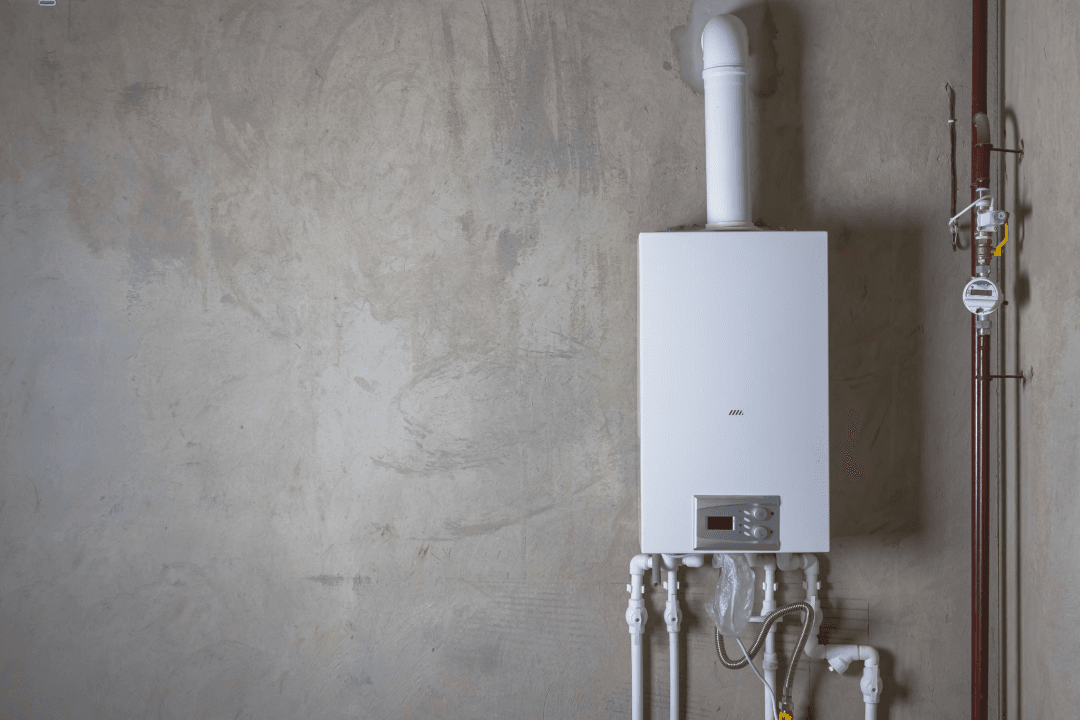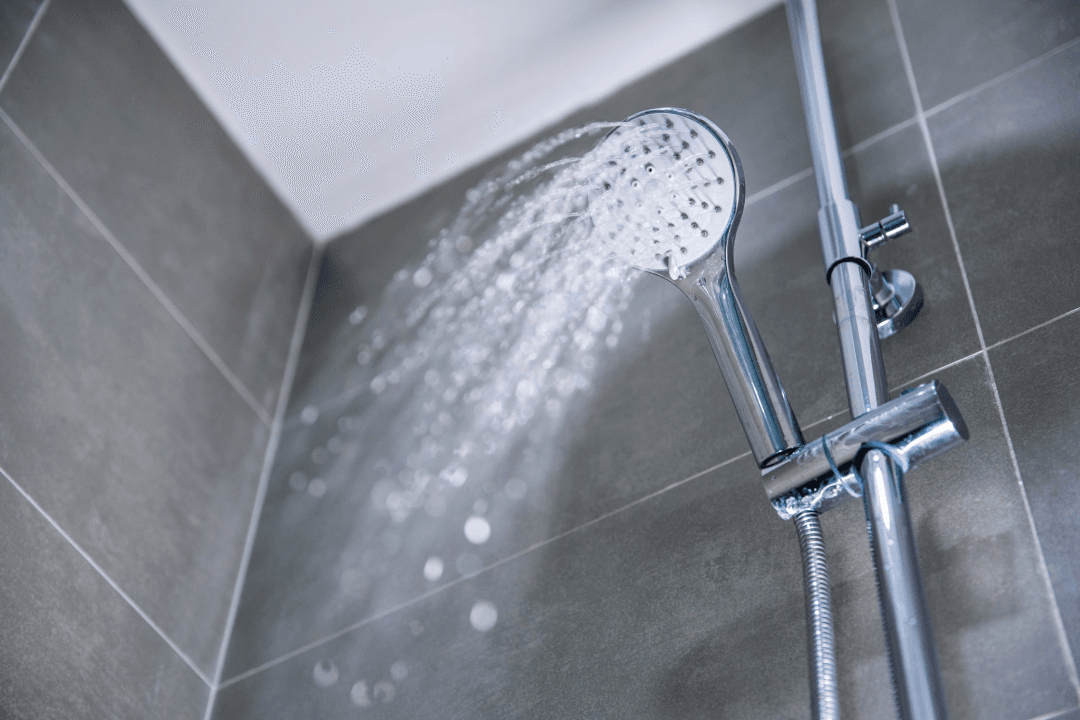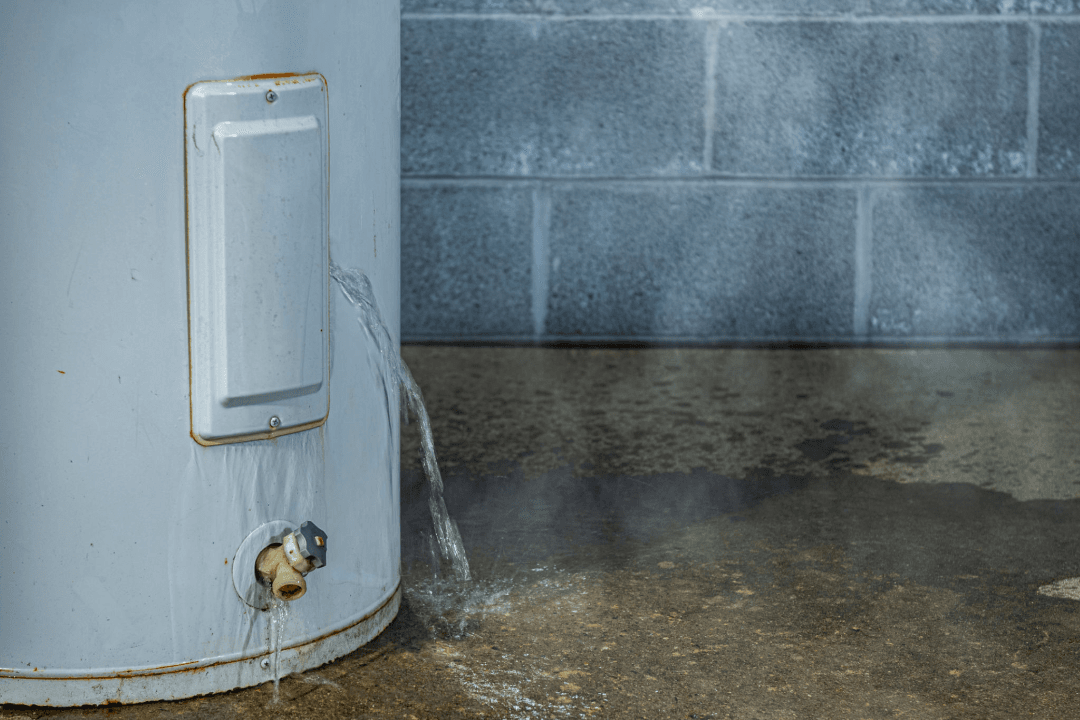Choosing between Gas vs. Electric Water Heaters is a significant decision that impacts your home’s comfort, energy bills, and environmental footprint. These two types of water heaters, each with distinct advantages and drawbacks, are the primary options for households nationwide. With over 30 years of experience serving Woodville, Texas, and neighboring areas, Service by Scott understands the importance of making an informed decision. Whether you need plumbing services or water heater maintenance, our team is here to assist you.
Gas water heaters utilize natural gas or propane for efficient heating, while electric water heaters rely on electricity. In this article, we’ll compare gas vs. electric water heaters, exploring key factors such as efficiency, operating costs, installation requirements, and environmental impact. With our expertise and dedication to customer satisfaction, Service by Scott is your trusted partner in all your plumbing needs. We’re committed to providing the guidance and solutions you need to make the best choice for your home.

Efficiency and Operating Costs
When comparing gas vs. electric water heaters, efficiency and operating costs are among the primary considerations for homeowners. Understanding the differences between the two types can help you determine which option aligns best with your budget and energy preferences.
Gas Water Heaters
Gas water heaters are renowned for their high energy efficiency, making them an attractive choice for many households. Here are some key points to consider regarding their efficiency and operating costs:
- High Energy Efficiency: Gas water heaters typically boast higher energy efficiency ratings compared to their electric counterparts. This means they can heat water more efficiently, resulting in lower energy consumption and reduced utility bills over time.
- Lower Operating Costs in Certain Areas: In regions where natural gas or propane prices are relatively low compared to electricity rates, gas water heaters often offer significant cost savings over their electric counterparts. However, it’s essential to consider local energy prices and availability when evaluating operating costs.
- Dependence on Gas Prices: While gas water heaters can provide cost savings in areas with favorable gas prices, they are susceptible to fluctuations in gas prices over time. It’s essential to factor in potential price variations when assessing long-term operating costs.
Electric Water Heaters
Electric water heaters, while generally considered less efficient than gas models, still offer several advantages in terms of installation and maintenance. Here’s what you need to know about their efficiency and operating costs:
- Lower Upfront Costs: Electric water heaters typically have lower upfront costs compared to gas models, making them an appealing option for budget-conscious homeowners. This initial cost savings can be particularly advantageous for those on a tight budget or seeking to minimize upfront expenses.
- Higher Operational Costs: Despite their lower upfront costs, electric water heaters often have higher operational costs due to the comparatively higher price of electricity. Over time, this can result in higher utility bills compared to gas water heaters, particularly in areas with expensive electricity rates.
- Consistency in Electricity Pricing: Unlike gas prices, which can fluctuate based on market conditions, electricity prices tend to be more stable and predictable over time. This consistency in pricing can provide homeowners with greater peace of mind when budgeting for long-term energy expenses.
When choosing between a gas vs. electric water heater, it’s essential to weigh the upfront costs, operating costs, and energy efficiency of each option carefully. By considering your budget, energy priorities, and local energy market conditions, you can make an informed decision that meets your household’s needs while maximizing energy savings.

Installation and Maintenance
When it comes to installation and maintenance, gas and electric water heaters differ in several key aspects. Understanding these differences can help you determine which type is best suited for your home and lifestyle.
Gas Water Heaters
Installing a gas water heater typically involves a few additional considerations compared to electric models:
- Proper Ventilation and Gas Line Installation: Gas water heaters require adequate ventilation to safely vent combustion gases outdoors. Additionally, a dedicated gas line must be installed to supply fuel to the heater. Ensuring proper ventilation and gas line installation is crucial for safety and efficient operation.
- Regular Maintenance of Gas Lines and Burner: Gas water heaters may require periodic maintenance to ensure optimal performance and safety. This includes inspecting and cleaning the burner, checking for gas leaks, and ensuring the integrity of the gas lines. Regular maintenance by a qualified technician can help prevent issues and prolong the lifespan of the unit.
Electric Water Heaters
Installing and maintaining an electric water heater tends to be more straightforward compared to gas models:
- Easier Installation Process: Electric water heaters typically have a simpler installation process since they do not require ventilation or gas line installation. This can result in lower installation costs and a shorter installation timeframe compared to gas models.
- Lower Maintenance Requirements: Electric water heaters generally have fewer maintenance requirements compared to gas models. Routine tasks may include flushing the tank to remove sediment buildup and checking the heating elements for signs of wear or damage. With proper care, electric water heaters can provide reliable performance with minimal maintenance.
When deciding on gas vs. electric water heaters, consider factors such as your home’s existing infrastructure, budget, and maintenance preferences. If you value simplicity and lower maintenance requirements, an electric water heater may be the preferred choice. However, if you have access to natural gas or propane and prioritize energy efficiency, a gas water heater may be more suitable. Ultimately, consulting with a licensed plumber like Service by Scott can help you assess your options and make an informed decision that meets your specific needs.
Environmental Impact
When considering the environmental impact of Gas vs. Electric Water Heaters, several factors come into play, influencing their overall sustainability and eco-friendliness.
Gas Water Heaters
Gas water heaters, which rely on natural gas or propane, have notable environmental considerations:
- Greenhouse Gas Emissions: The combustion of natural gas or propane in gas water heaters releases carbon dioxide (CO2) and other greenhouse gases into the atmosphere, contributing to climate change. The emissions from gas water heaters can vary depending on factors such as the efficiency of the unit and the source of the gas.
- Environmental Concerns with Natural Gas Extraction: The extraction and production of natural gas can have adverse environmental impacts, including habitat disruption, water contamination, and methane emissions. These environmental concerns associated with natural gas extraction add to the overall environmental footprint of gas water heaters.
Electric Water Heaters
Electric water heaters, powered by electricity, also have environmental considerations to take into account:
- Lower Greenhouse Gas Emissions: Electric water heaters generally produce fewer greenhouse gas emissions compared to gas models, especially in regions with a significant portion of renewable energy sources in the electricity grid. However, in areas where electricity production relies heavily on fossil fuels, the environmental impact may be higher.
- Potential Reliance on Fossil Fuels: While electric water heaters themselves do not produce emissions during operation, their environmental impact can be influenced by the source of electricity. In regions where electricity is primarily generated from fossil fuels such as coal or natural gas, electric water heaters may indirectly contribute to greenhouse gas emissions.
Considerations for Sustainability
When evaluating the environmental impact of gas and electric water heaters, it’s essential to consider factors such as energy efficiency, emissions, and the source of energy. Opting for energy-efficient models and choosing renewable energy sources can help mitigate the environmental impact of both types of water heaters.
At Service by Scott, we understand the importance of sustainability and environmental stewardship. Our team can guide you in selecting eco-friendly water heating solutions that align with your values and contribute to a greener future.

Performance and Heating Capacity
When comparing the performance and heating capacity of Gas vs. Electric Water Heaters, several factors come into play that can influence their effectiveness in providing hot water for your household needs.
Gas Water Heaters
Gas water heaters are known for their efficient performance and quick heating capabilities:
- Faster Heating Times: Gas water heaters typically heat water more quickly than electric models, allowing for faster recovery times and ensuring a steady supply of hot water, especially during peak demand periods.
- Consistent Hot Water Supply: Gas water heaters maintain a consistent temperature throughout operation, providing reliable hot water for various household activities, such as showering, dishwashing, and laundry.
Electric Water Heaters
Electric water heaters offer reliable performance but may have slower heating times compared to gas models:
- Slower Heating Times: Electric water heaters generally have slower heating times compared to gas models, which can result in longer wait times for hot water and potentially reduced overall hot water availability during times of high demand.
- Potential Struggles with Large Demand: Electric water heaters may struggle to keep up with a high demand for hot water, particularly in larger households or during simultaneous usage of multiple hot water fixtures.
Considerations for Heating Capacity
When selecting between gas and electric water heaters, it’s essential to consider your household’s hot water usage patterns and heating capacity requirements. Factors such as the size of your household, the number of bathrooms, and the frequency of hot water usage can influence the suitability of each type of water heater.
At Service by Scott, our team can assess your specific heating needs and recommend the most suitable water heater solution to ensure optimal performance and efficiency for your home. Whether you require a high-capacity gas water heater or an electric model tailored to your household size, we’re here to provide expert guidance and reliable installation services.
Durability and Lifespan
When it comes to assessing the durability and lifespan of Gas vs. Electric Water Heaters, several factors play a role in determining the longevity and reliability of each type of unit.
Gas Water Heaters
Gas water heaters are generally known for their robust construction and extended lifespan:
- Longer Lifespan: Gas water heaters often have a longer lifespan compared to electric models, with many units lasting upwards of 10 to 15 years or more with proper maintenance and care. The durable materials used in their construction, such as steel or stainless steel tanks, contribute to their longevity.
- Less Susceptible to Corrosion: The materials used in gas water heaters, such as steel or stainless steel tanks, are typically less susceptible to corrosion compared to the components found in electric water heaters. This can contribute to the overall durability and longevity of the unit, reducing the risk of leaks and premature failure.
Electric Water Heaters
Electric water heaters also offer reliable performance but may have a slightly shorter lifespan compared to gas models:
- Potential Corrosion Issues: Electric water heaters may be more prone to corrosion, particularly in areas with hard water or high mineral content. Over time, corrosion can weaken the tank and components, potentially leading to leaks or premature failure. Regular maintenance, such as flushing the tank to remove sediment buildup and inspecting components for signs of corrosion, can help mitigate this risk.
- Slightly Shorter Lifespan: While electric water heaters can still provide many years of reliable service, they may have a slightly shorter lifespan compared to gas models, typically ranging from 8 to 12 years on average. Factors such as water quality, usage patterns, and maintenance practices can influence the longevity of an electric water heater.
Considerations for Long-Term Durability
When evaluating the durability and lifespan of gas vs. electric water heaters, it’s essential to consider factors such as water quality, maintenance practices, and manufacturer warranties. Regular maintenance, such as flushing the tank to remove sediment buildup and inspecting components for signs of wear, can help prolong the lifespan of both types of water heaters.
At Service by Scott, we understand the importance of investing in a durable and long-lasting water heater solution for your home. Our team can provide expert advice on selecting a high-quality unit and offer maintenance services to ensure optimal performance and longevity. Whether you opt for a gas or electric water heater, you can trust us to deliver reliable solutions tailored to your needs. With our commitment to excellence, we strive to provide peace of mind and satisfaction for our customers, ensuring that your water heater investment stands the test of time.

Safety Considerations
When comparing Gas vs. Electric Water Heaters, safety is paramount, and understanding the potential risks and precautions associated with each type is essential for ensuring the well-being of your household.
Gas Water Heaters
Gas water heaters present specific safety considerations due to the use of natural gas or propane:
- Risk of Gas Leaks: One of the primary safety concerns with gas water heaters is the risk of gas leaks, which can occur due to damaged gas lines, faulty connections, or improper installation. Gas leaks pose a serious hazard as they can lead to fires, explosions, and carbon monoxide poisoning if left undetected.
- Carbon Monoxide Poisoning: Inadequate ventilation or malfunctioning combustion systems in gas water heaters can result in the release of carbon monoxide, a colorless, odorless gas that is toxic when inhaled. Carbon monoxide poisoning can cause symptoms such as headaches, dizziness, nausea, and even death in severe cases.
- Proper Ventilation Requirements: Proper ventilation is crucial for gas water heaters to ensure the safe expulsion of combustion gases outdoors and prevent the buildup of carbon monoxide within the home. Regular inspection and maintenance of ventilation systems are essential for mitigating the risk of carbon monoxide exposure.
Electric Water Heaters
While electric water heaters do not pose the same risks associated with gas leaks or carbon monoxide poisoning, they still require careful consideration of safety measures:
- Electrical Hazards: Electric water heaters pose a risk of electrical hazards, such as shocks or fires, if not installed or maintained properly. It’s essential to ensure that the unit is connected to a properly grounded electrical circuit and that wiring is installed according to local building codes and safety standards.
- Water Leakage: Like all water heaters, electric models can develop leaks over time, potentially causing water damage to surrounding areas and posing slip and fall hazards. Regular inspection of the tank and connections can help identify and address any leaks promptly.
Safety Precautions
Regardless of the type of water heater you choose, several safety precautions can help mitigate potential risks:
- Professional Installation: Hiring a licensed plumber for the installation of your water heater can ensure that it is installed correctly and meets all safety requirements and building codes.
- Regular Maintenance: Schedule routine maintenance inspections for your water heater to check for signs of wear, leaks, or other issues that could compromise safety. Addressing problems promptly can prevent more significant issues from arising.
- Carbon Monoxide Detectors: Install carbon monoxide detectors near gas water heaters and in other areas of your home to provide early warning of any buildup of this odorless gas.
- Fire Safety Measures: Keep flammable materials away from the water heater and ensure that it is installed in an area with proper clearance from combustible materials. Additionally, have a fire extinguisher readily available in case of emergencies.
At Service by Scott, safety is our top priority, and our team is dedicated to ensuring that your water heater is installed and maintained to the highest safety standards. Whether you choose a gas or electric water heater, you can trust us to prioritize your family’s safety and well-being.
Conclusion
In conclusion, comparing Gas vs. Electric Water Heaters highlights several important factors to consider when making this significant decision for your home.
Gas water heaters offer efficient heating and faster recovery times, making them a reliable choice for households with high hot water demand. However, they come with safety considerations such as gas leaks and carbon monoxide poisoning risks, which require proper ventilation and maintenance.
On the other hand, Electric Water Heaters provide ease of installation and may be more suitable for homes without access to natural gas. However, they can have slower heating times and may be prone to electrical hazards if improperly installed or maintained.
Ultimately, the choice between gas vs. electric water heaters depends on your needs, budget, and safety priorities. Regardless of your decision, Service by Scott is here to assist you every step of the way. With over 30 years of experience serving Woodville, Texas, and neighboring areas, our team is committed to providing expert guidance and reliable solutions for all your plumbing needs.
Contact Service by Scott today to discuss your water heater options and schedule professional installation or maintenance services. Trust us to ensure your home has the efficient, safe, and reliable water heating solution it deserves.
FAQs
How do I decide between a gas and electric water heater?
Consider factors such as your home’s energy source availability, hot water demand, budget, and safety preferences. Gas heaters offer faster heating times and lower operating costs in some areas, while electric heaters may be more suitable for homes without access to natural gas.
Are gas water heaters more efficient than electric ones?
Gas water heaters often have higher energy efficiency ratings, resulting in lower operating costs in certain regions. However, electric water heaters can be more efficient in areas with low electricity prices or access to renewable energy sources.
What maintenance tasks are required for gas and electric water heaters?
Both gas and electric water heaters require regular maintenance to ensure optimal performance and longevity. Tasks include flushing the tank to remove sediment buildup, inspecting for leaks or corrosion, and checking safety features such as pressure relief valves.
Are there any safety risks associated with gas or electric water heaters?
Gas water heaters pose risks of gas leaks and carbon monoxide poisoning if not properly ventilated or maintained. Electric water heaters can present electrical hazards if not installed or maintained correctly. Both types require adherence to safety precautions and regular inspections.
How do installation costs compare between gas and electric water heaters?
Installation costs for gas water heaters may be higher due to additional requirements such as gas line installation and proper ventilation. Electric water heaters generally have simpler installation processes, resulting in lower upfront installation costs in many cases.

